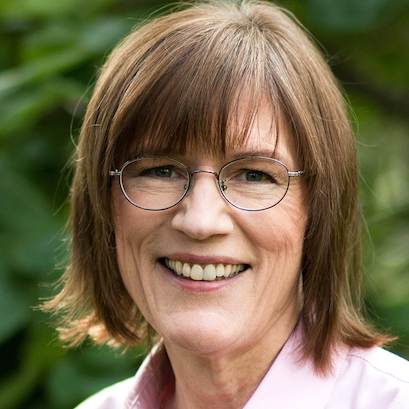This webinar will run from 10:00 am - 12:00 pm ET / 7:00 am - 9:00 am PT on April 1, 2023 for a total of 2 credit hours.
For those who cannot attend the live webinar on April 1, a recording of the webinar will be available for a week following the live webinar. CE credit is only available for live attendance.
A growing body of research insight from neuroscience has revealed many surprises when it comes to teaching math. For example, some forms of teaching can engage students’ sophisticated pattern recognition systems, which can be invaluable in making math easier to learn, particularly at more advanced levels. And there are further surprises—for example, just because students know how to solve a problem in math does not necessarily mean that they can—or should—be able to explain it. In fact, forcing some neurally diverse students to explain their reasoning when they can already demonstrate their understanding can actually kill their motivation for deeper learning. In this webinar, we will explore these and other counterintuitive insights from research that can allow you to make intelligent use of students’ differing underlying approaches to learning. You will also explore the intimate connection between retrieval practice in math and the metaphors used in art, music, and poetry.
LEARNING OBJECTIVES
Participants will be able to:
-
Explain the difference between declarative (hippocampal) and procedural (basal ganglia) learning, and why both approaches to learning are important in mathematics and other subjects
-
Describe the difference between consolidation and interleaving, and explain why both processes are important in learning
-
Use insights from the neuroscience of movie-making to show why retrieval practice in math involves far more than simple memorization of facts
WHO SHOULD ATTEND
This seminar is applicable to K-12 general and special education teachers, math teachers, instructional coaches, and college instructors.
WORKSHOP LEADER
 Barbara Oakley, PhD, PE is a Distinguished Professor of Engineering at Oakland University in Rochester, Michigan; Michigan’s Distinguished Professor of the Year; and Coursera’s inaugural “Innovation Instructor.” Her work focuses on the complex relationship between neuroscience and social behavior. Dr. Oakley’s research has been described as “revolutionary” in the Wall Street Journal. She is a New York Times best-selling author who has published in outlets as varied as the Proceedings of the National Academy of Sciences, the Wall Street Journal, and The New York Times. Her book A Mind for Numbers, on effective learning in STEM disciplines, has sold over a million copies worldwide; Uncommon Sense Teaching is a critically praised guide to teaching based on insights from neuroscience. Dr. Oakley has won numerous teaching awards, including the American Society of Engineering Education’s Chester F. Carlson Award for technical innovation in engineering education and the Institute of Electrical and Electronic Engineers William E. Sayle II Award for Achievement in Education. Together with Terrence Sejnowski, the Francis Crick Professor at the Salk Institute, she co-teaches Coursera’s “Learning How to Learn,” one of the world’s most popular massive open online courses with some four million registered students, along with a number of other leading MOOCs.
Barbara Oakley, PhD, PE is a Distinguished Professor of Engineering at Oakland University in Rochester, Michigan; Michigan’s Distinguished Professor of the Year; and Coursera’s inaugural “Innovation Instructor.” Her work focuses on the complex relationship between neuroscience and social behavior. Dr. Oakley’s research has been described as “revolutionary” in the Wall Street Journal. She is a New York Times best-selling author who has published in outlets as varied as the Proceedings of the National Academy of Sciences, the Wall Street Journal, and The New York Times. Her book A Mind for Numbers, on effective learning in STEM disciplines, has sold over a million copies worldwide; Uncommon Sense Teaching is a critically praised guide to teaching based on insights from neuroscience. Dr. Oakley has won numerous teaching awards, including the American Society of Engineering Education’s Chester F. Carlson Award for technical innovation in engineering education and the Institute of Electrical and Electronic Engineers William E. Sayle II Award for Achievement in Education. Together with Terrence Sejnowski, the Francis Crick Professor at the Salk Institute, she co-teaches Coursera’s “Learning How to Learn,” one of the world’s most popular massive open online courses with some four million registered students, along with a number of other leading MOOCs.
Dr. Oakley has adventured widely through her lifetime. She rose from the ranks of Private to Captain in the U.S. Army, during which time she was recognized as a Distinguished Military Scholar. She also worked as a communications expert at the South Pole Station in Antarctica, and has served as a Russian translator on board Soviet trawlers on the Bering Sea. Dr. Oakley is an elected Fellow of the American Institute for Medical and Biological Engineering.


 Barbara Oakley, PhD, PE is a Distinguished Professor of Engineering at
Barbara Oakley, PhD, PE is a Distinguished Professor of Engineering at